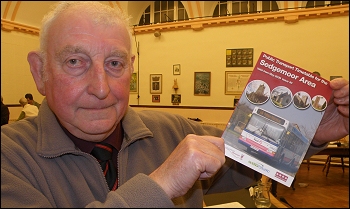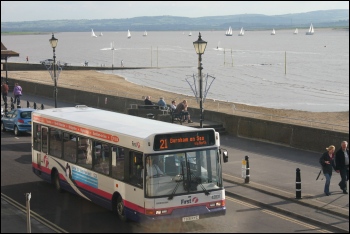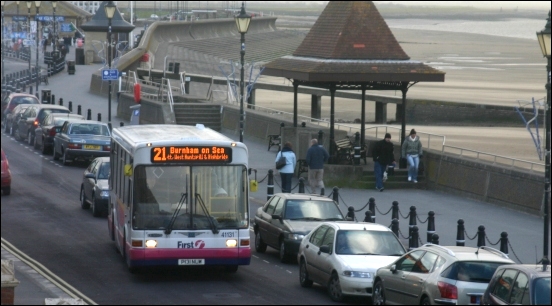Bus operator First has come under attack for its decision to axe evening bus services between Burnham-On-Sea and Taunton from this weekend.
The firm is removing evening journeys on its 21 service which serves Burnham, Bridgwater and Taunton in a bid to reduce costs.
From Sunday July 28th, the last weekday journey from Taunton to Burnham will be at 7.45pm and the last journey from Burnham-On-Sea will be at 7.20pm, or 7.05pm on Saturdays, instead of the current service which runs up to around 10.30pm.
 Burnham town and district councillor Chris Williams, right, has expressed his dismay at the decision.
Burnham town and district councillor Chris Williams, right, has expressed his dismay at the decision.
He told Burnham-On-Sea.com: “It is a service which needs to be available. Cutting off a population centre of around 22,000 from the county town is a cut too far, and this needs to be recognised and addressed.”
“As well as the general reduction in service, my particular concern is for those who undertake evening visits to patients in Taunton’s Musgrove Park Hospital and who have not got the use of a car.”
A First spokesman explained that the changes have been brought about by low numbers of passengers using the services: “While First has tried to operate these services on a commercial basis since financial support from Somerset County Council was withdrawn in 2011, they are not commercially viable. Put simply, the number of people using the buses at these times does not cover the cost of running the buses themselves.”
 But Cllr Williams is unhappy about the changes, adding: “In the past, communities have fought long and hard to retain a public transport service to meet this demand, even though it may not be for a large number of residents.”
But Cllr Williams is unhappy about the changes, adding: “In the past, communities have fought long and hard to retain a public transport service to meet this demand, even though it may not be for a large number of residents.”
“These are my own personal views and not necessarily the view of either council, but I intend to bring up the matter officially at both the Town and District Councils as I am firmly of the opinion that where reductions in service are proposed either the bus company concerned or the County Council, who negotiate/comment on proposals, should be required to at least notify every parish directly affected, so communities are not bypassed and presented with a fait accompli.”







